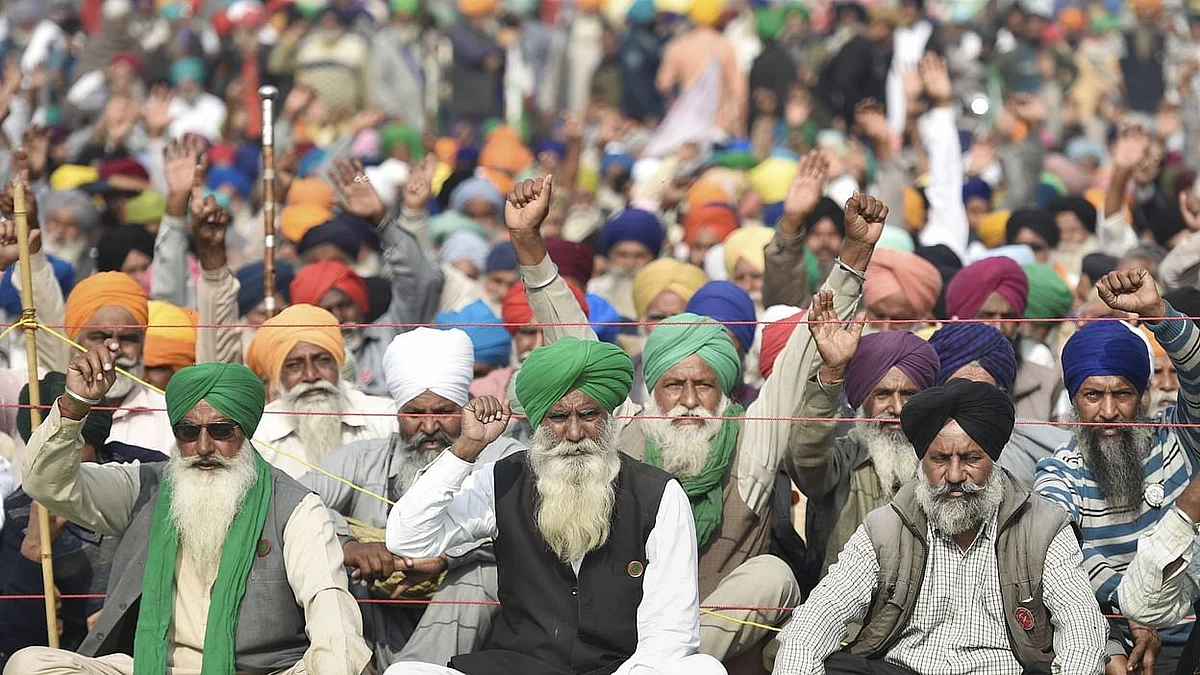Must Take Comments in Context: MEA on US’ Remarks on Farmers’ Movt
“We recognise that peaceful protests are a hallmark of any thriving democracy,” the US State Department said.

advertisement
The Ministry of External Affairs (MEA) spokesperson Anurag Srivastava on Thursday, 4 February said that India had taken note of the comments of the US State Department, adding that it is “important to take such comments in the context in which they are made and in their entirety”, reported ANI.
Reacting to the remarks, the MEA, at a briefing on Thursday evening, said that the US State Dept has acknowledged that steps are being taken by India towards agricultural reforms.
“Any protest must be seen in the context of India's democratic ethos and polity and ongoing efforts of government and concerned farmer groups to resolve the impasse,” Srivastava said.
The MEA also said that India and the US are both vibrant democracies with shared values, adding that incidents of violence and vandalism at the historic Red Fort on 26 January had evoked similar sentiments and reactions in India as the Capitol Hill incident in the US had done. Both incidents were being addressed as per local laws, he said.
“The temporary measures with regards to internet access in certain parts of the Delhi-NCR region were therefore understandably undertaken to prevent further violence,” the MEA spokesperson added, according to ANI.
WHAT DID THE US STATE DEPARTMENT SAY?
“We recognise that peaceful protests are a hallmark of any thriving democracy, and not that the Indian Supreme Court has stated the same… We encourage that any differences between the parties be resolved through dialogue,” a US State Department spokesperson was quoted as saying, as the deadlock continues between the farm unions and the government over three contentious agriculture laws and the MSP, despite 11 rounds of talks.
According to the government, the three farm laws at the centre of the agitation would give farmers greater flexibility and freedom to sell their produce. However, the protesting farmers have argued that the laws would prioritise the interests of corporates over theirs.
“We recognise that unhindered access to information, including the internet, is fundamental to the freedom of expression and a hallmark of a democracy,” the spokesperson further said.
Internet services had been suspended at the protests sites around Delhi and in several districts of Haryana over the last few days. Moreover, heavy police presence with elaborate barricading has been deployed since 26 January at the three main protest sites of the farmers near the borders of Delhi. On Republic Day, violence erupted in parts of the national capital during the farmers’ tractor rally.
(With inputs from ANI.)